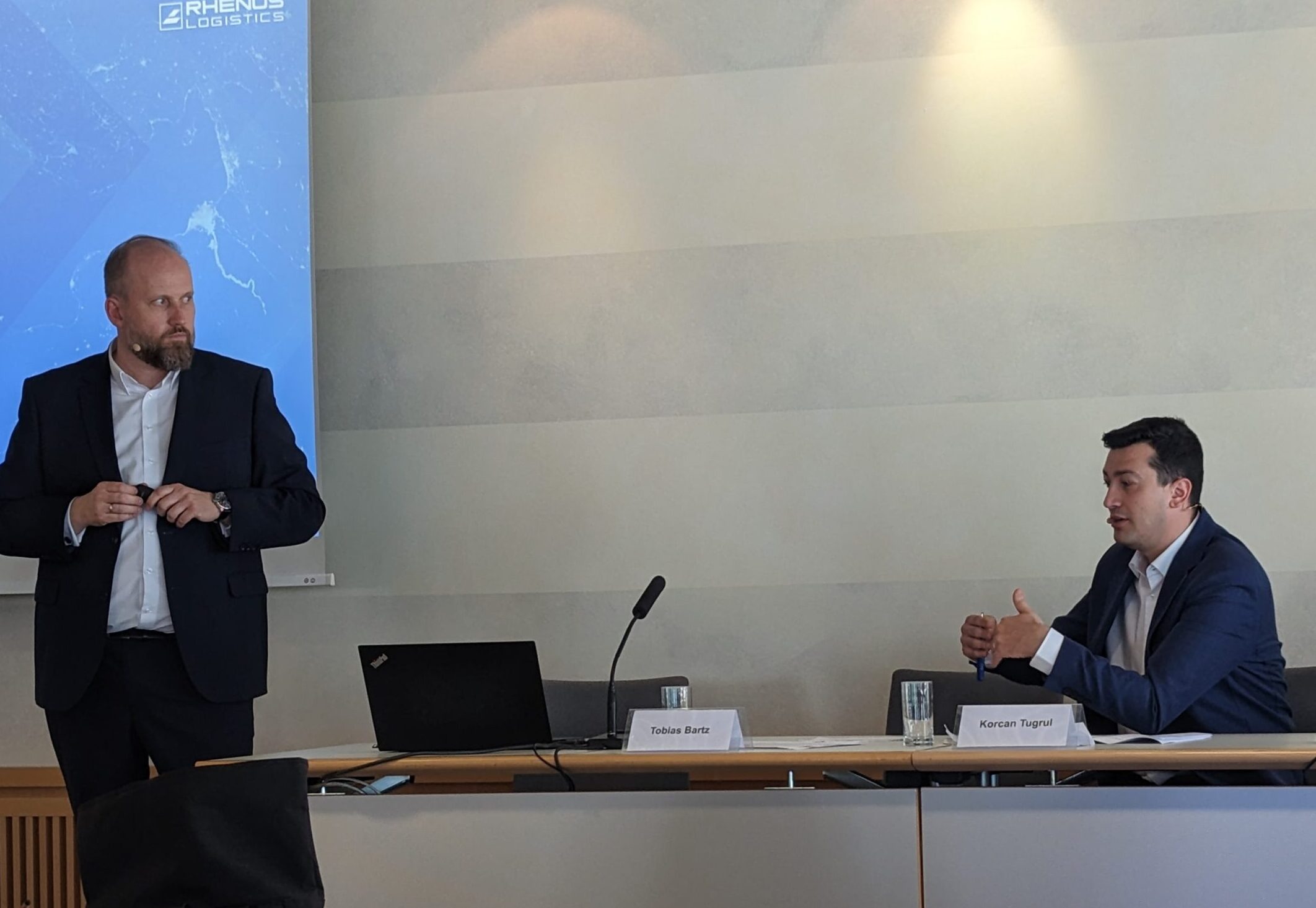Robust airfreight will aid nearshoring
16 / 05 / 2023

Tobias Bartz (left) and Korcan Tugrul. Photo: Rebecca Jeffrey
Robust airfreight infrastructure is a valuable tool in helping the Rhenus Group build nearshoring business.
The German logistics company said it is focusing on nearshoring to support flexibility within transport chains during a press conference at Air Cargo Europe.
“With the infrastructure, airlines and cargo planes in place, it’s a good option to rethink the whole setup,” said Tobias Bartz, chief executive and chairman of the board of the Rhenus Group.
For example: “From an industry perspective a very impressive airport at Istanbul helps with the options you have there.”
Developing a nearshoring strategy will open up supply chain production beyond traditional key countries such as China, believes the Rhenus Group.
Bartz said: “It’s not only the nearshoring for Far East goods towards Europe, it’s also tapping into the local market.
“There are many states that also wish to grow. There are very often markets that were not that considered because we focused on Europe and China, at least from our perspective, and we have tried to open these to our clients as well.”
The main driver for pursuing nearshoring is to tackle supply chain vulnerability and risks, said Bartz.
“To rely solely on seafreight is a very risky thing as we’ve learnt in recent years.”
He added: “I think they (customers) are trying to overcome this risk of a very fragile network and of course for more of them sustainability is very important too.”
Bartz pointed out that there has historically been a high dependence on production from China.
“I think it would be wrong and ludicrous to think you could change the whole production from a powerhouse like China to somewhere else…” but other options are now being explored by Rhenus.
As well as reducing the risk of supply chain shortages and congestion, nearshoring can also be good for talent pipelines.
According to Bartz, many businesses investing in nearshoring “have a very highly skilled labour force”.
“We want to convince our clients that production can be perfectly well done outside the normal areas where they are.”
Bartz also said nearshoring leads to reduced lead times.
“Bringing things closer to home means stock levels are positively impacted and the risk of long supply chains and thinly stretched (shipments) are minimised.”
In the last three years, Rhenus has been focusing on growing in the LATAM region with its air and ocean division.
“We embarked via several M&As in the Northern American market and we have seen a rapid shift away from the Chinese market towards markets much, much closer to home beginning with Mexico which we opened two years ago.
“We have now also strengthened our stronghold in Brazil, expanded to Columbia, and have moved into Chile.”
This year, Rhenus aims to further expand in the region.
“We’re looking at several mergers and acquisitions to strengthen the foothold there and it’s possible within the next year we will triple our size within the region.”
The Group previously expanded in Southeast Asia and now offers final-mile delivery alongside other services.
Bartz said there is a synergy between LATAM and Southeast Asia as “these regions cooperate, they exchange and trade, and this really grows our global network tremendously”.
“We feel we can give a holistic package that really drives the nearshoring process which we believe the industry in Europe needs in order to be resilient,” added Korcan Tugrul, managing director Rhenus Turkey.













